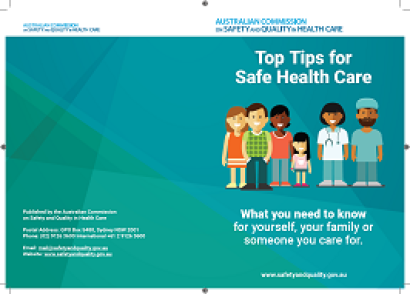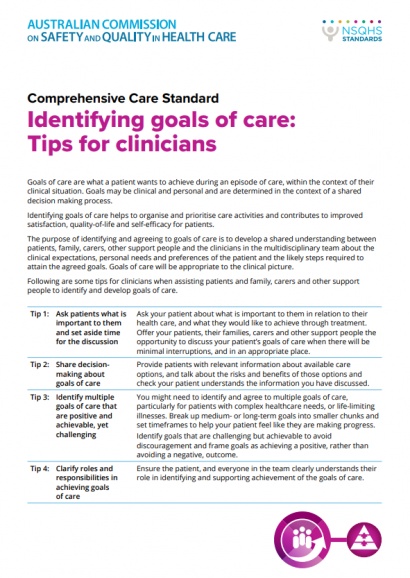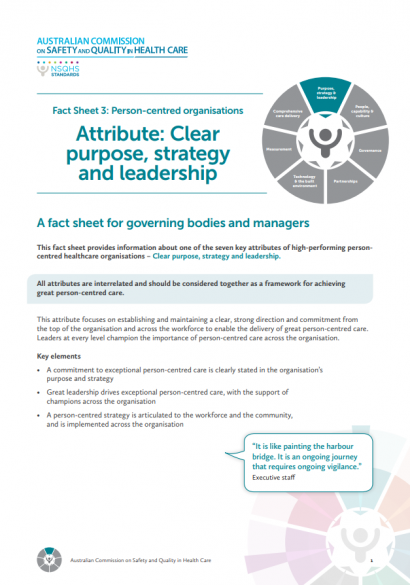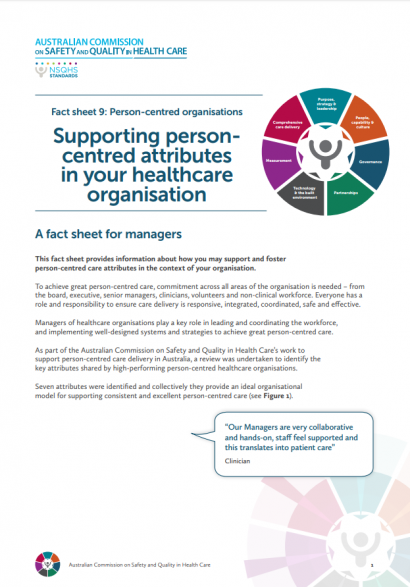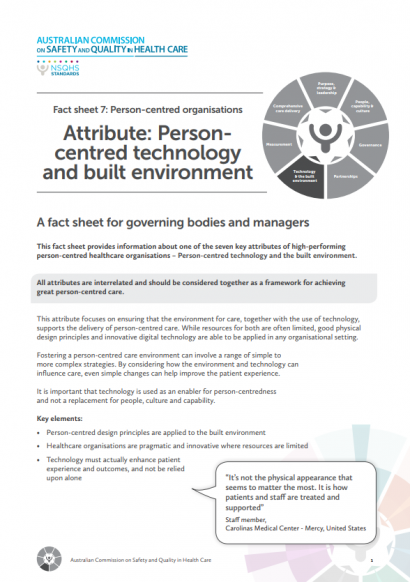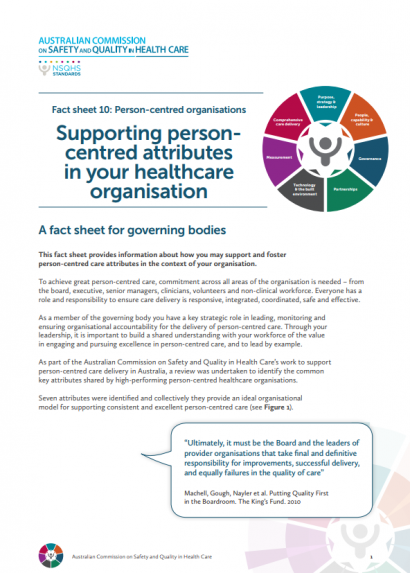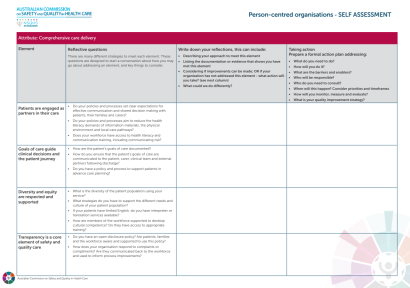The Commission has developed a series of fact sheets for consumers and carers about the NSQHS Standards (second edition) and the accreditation process.
The Commission has translated some key information for consumers into community languages.
Monitoring, measuring and evaluating consumer partnerships is vital to ensure that these partnerships achieve their objectives and meet the needs of patients, carers, families, consumers, the workforce and the health service.
The Commission has developed range of resources describing the attributes of high-performing person-centred healthcare organisations.
Seven key attributes common in high-performing person-centred healthcare organisations have been identified. Collectively, the seven attributes provide an ideal organisational model for supporting consistent and excellent person-centred care.
The Commission has developed an online education module on shared decision-making that focuses on communicating risk.
The National statement on health literacy is Australia’s national approach to addressing health literacy.
Person-centred care is widely recognised as a foundation to safe, high-quality health care. It is care that respects and responds to the preferences, needs and values of patients and consumers.
The Commonwealth, state and territory governments across Australia are increasing their focus on improving the safety and quality of end-of-life care.
The Commission has developed resources to help you talk to you healthcare provider about what is important to you, your treatment options, and to help you share decisions about your care.
The Commission has undertaken four environmental scans to consider the content and quality of consumer information about cataract surgery, tonsillectomy in children, heavy menstrual bleeding, and birth options.
The Commission has developed information for consumers on some key safety and quality issues, and health conditions.

